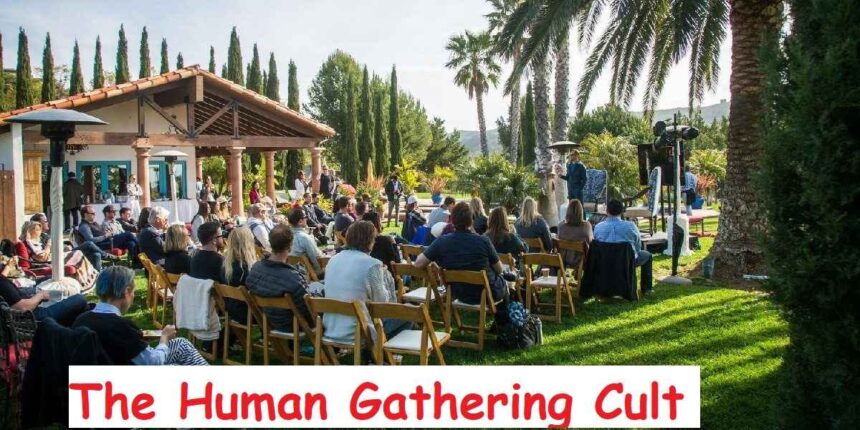Introduction to Human Gathering Cult
Welcome to the fascinating world of human gathering cult, where communities come together in pursuit of shared beliefs, rituals, and practices. From ancient civilizations to modern-day societies, these gatherings have shaped our social fabric and influenced our psychological well-being in profound ways. Join us as we delve into the history, evolution, impact, and controversies surrounding human gathering cults. Let’s explore how these unique groups have left a lasting imprint on society throughout the ages.
The History and Evolution of Human Gatherings
Human gatherings have been an integral part of human history since ancient times. From tribal ceremonies to religious rituals, people have always come together for various reasons. These gatherings served as a way to strengthen social bonds, share knowledge, and celebrate important events.
Over the centuries, human gatherings evolved with the changing dynamics of society. The Industrial Revolution brought about urbanization and mass migrations, leading to larger and more diverse gatherings in cities. With advancements in transportation and communication technology, people could connect across vast distances and organize global events.
In recent years, the rise of social media has revolutionized how humans gather. Virtual communities now exist where individuals can engage with like-minded people online without physical proximity. Despite these changes, the fundamental need for human connection remains unchanged throughout history.
As we continue to evolve technologically and socially, it is crucial to understand how human gatherings shape our society’s values and beliefs. By studying their history and evolution, we gain insight into the profound impact they have on our collective identity.
The Social and Psychological Effects of Human Gathering Cults
Human gathering cults can have profound social and psychological effects on individuals and society as a whole. The sense of belonging and community that these cults provide can create a strong bond among members, leading to feelings of acceptance and validation. However, this tight-knit environment may also foster dependency on the group’s beliefs and practices.
Psychologically, human gathering cults often employ tactics such as manipulation, isolation, and control to maintain power over their followers. This can result in individuals losing their autonomy and critical thinking abilities. Moreover, the intense devotion to a charismatic leader or ideology within these cults can lead to cognitive dissonance among members who may ignore contradictory information.
Socially, human-gathering cults may isolate their members from mainstream society, making it challenging for them to re-integrate if they choose to leave the group. Additionally, the secrecy and exclusivity of these cults can contribute to societal stigmatization and misconceptions about their practices.
In essence, understanding the social and psychological impact of human-gathering cults is crucial in promoting awareness and fostering support for those affected by these groups.
Examples of Famous Human Gathering Cults
Human gathering cults have left a mark on history with their unique beliefs and practices. One notable example is the Heaven’s Gate cult, known for their mass suicide in 1997 to reach what they believed was an extraterrestrial spacecraft following the Hale-Bopp comet.
Another famous cult is the Branch Davidians, led by David Koresh, who clashed with law enforcement in Waco, Texas in 1993 resulting in a tragic siege that ended with many lives lost.
The People’s Temple led by Jim Jones gained notoriety after over 900 members died in Jonestown, Guyana from cyanide poisoning under mysterious circumstances.
These examples serve as cautionary tales of the extreme influence leaders can have over their followers within human gathering cults.
The Role of Technology in Modern-Day Human Gatherings
In the digital age, technology has revolutionized how human gatherings take place. Social media platforms like Facebook and Meetup make it easier to connect with like-minded individuals and organize events. Virtual reality allows people to attend gatherings from the comfort of their own homes, breaking down geographical barriers.
Smartphone apps streamline the process of RSVPing to events and sharing real-time updates during gatherings. Live streaming services enable those unable to physically attend an event to participate remotely, fostering inclusivity. Additionally, online forums provide a space for individuals within a community cult to engage in discussions and share resources.
Technology plays a significant role in enhancing the overall experience of modern-day human gatherings by promoting convenience and accessibility.
Controversies Surrounding Human Gathering Cults
Controversies surrounding human gathering cults have long been a topic of interest and concern in society. These groups often face criticism for their unconventional beliefs, practices, and the influence they wield over their members. One of the major controversies is the issue of manipulation and control within these cults, where leaders may exert undue influence over followers through psychological tactics.
Another contentious aspect is the potential for harm to be inflicted on members who may be isolated from friends and family or coerced into risky behaviors. This raises ethical questions about freedom of choice and autonomy within these groups. Additionally, there are concerns about financial exploitation as some cults require significant monetary contributions from their followers.
Furthermore, the secrecy and exclusivity that often characterize human gathering cults can lead to suspicion and fear among outsiders. The lack of transparency about their beliefs and activities can fuel speculation and negative perceptions in wider society. The controversies surrounding human gathering cults underscore the need for critical evaluation and understanding of these groups’ impact on individuals and communities alike.
Conclusion
Understanding and evaluating the impact of human gathering cults on society is crucial for maintaining a healthy and informed community. By recognizing the historical context, social and psychological effects, examples of famous cults, the role of technology in modern gatherings, and controversies surrounding these groups, we can gain insight into their influence on individuals and communities.
It is essential to approach this topic with an open mind and a critical eye to protect vulnerable individuals from potential harm. By studying human gathering cults, we can learn from past mistakes and work towards creating a more understanding society that promotes personal autonomy and well-being for all its members. Let us continue to research, and discuss openly about these topics without prejudice or bias so that we may create a more inclusive and supportive environment for everyone.






